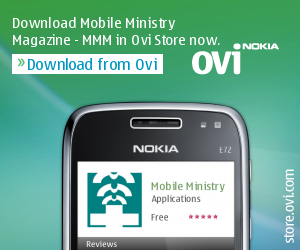 Some years back I wrote my first short story. One of the hallmarks of that story was how I was able to use a combination of email and social networks (then, just a forum) to attain readership and feedback on it as it was being created. The experience was great, but I had always wondered what else could be done given the various web and mobile technologies that I’ll play with. And further, how could reading a story on a mobile be… mobile?
Some years back I wrote my first short story. One of the hallmarks of that story was how I was able to use a combination of email and social networks (then, just a forum) to attain readership and feedback on it as it was being created. The experience was great, but I had always wondered what else could be done given the various web and mobile technologies that I’ll play with. And further, how could reading a story on a mobile be… mobile?
In a recent post at All About Symbian, I was introduced to a project called Cellstories. From their website:
CellStories was conceived and built by Daniel Sinker, who was the founding editor of Punk Planet magazine in another life. Thankfully, the death of print meant discovering something much more valuable: mobile publishing. But that previous life also meant that he met a great number of authors, publishers, and other Really Interesting People, many of whom were kind enough to supply some of the great pieces you’ve read
Read more about Cellstories and their innovative approach to reading, publishing, and networking a different kind of story.
Cellstories excites me for several reasons, but probably the most ticking one is how it forces the mobile interaction, and then builds out the experience of reading and sharing content from that point. In a lot of respects, its a nod to a very positive niche of publishing already happening in places such as Japan – where it is not uncommon to both read and compose/publish for mobile reading experiences.
So, in light of what we understand about the future of publishing, could this kind of delivery method, and even engagement experience rekindle some of the approaches to reading certain types of Biblical content? Could a digital printing method like this be a bridge in terms of easing some types of users into digital reading experiences from print ones (Amazon seems to be thinking in this manner)? Could it even change the relationship between publishers and authors?
Or, could this be a method used in mobile ministry engagements where we are training communities to tell the Gospel story using the narrative context of their own cultures – where mobile devices play the role of the ink and canvas? From an educational standpoint, could the Cellstory format be approachable towards teaching those writing and composition skills that are often debated for mobile-enabled users these days?
And the implications of Cellstories is clear: mobile reading is being approached similar to mobile gaming – instead of making experiences that are immersive, we look for the shorter experiences that convey some type of information in a chunk that is appropriate for less intense moments (such as waiting in line, sitting for a few minutes in a coffee shop/bathroom, etc.).
Personally speaking, I like this. And have Cellstories bookmarked on my mobile devices as the reading is certainly engaging. What say you?




